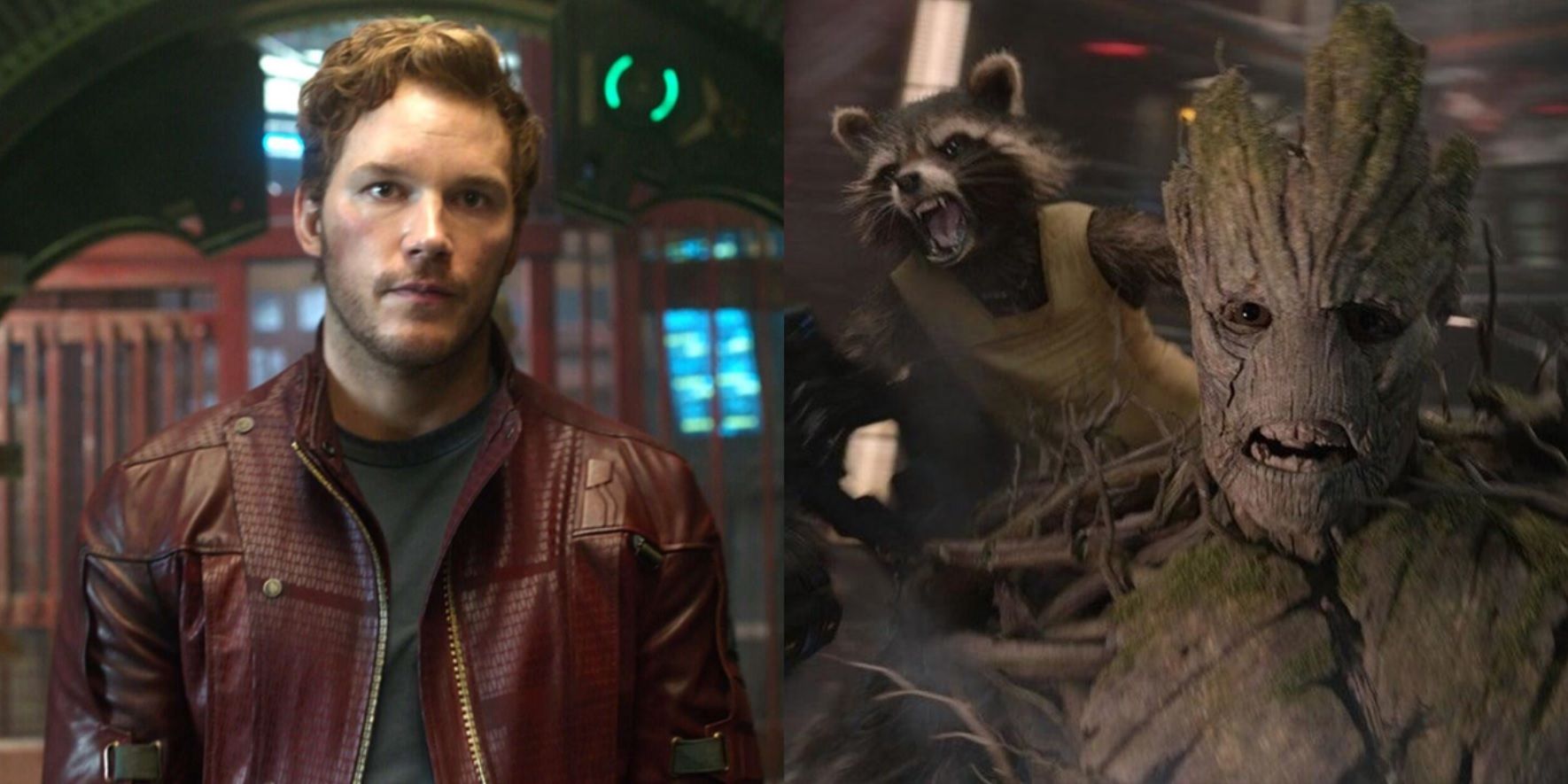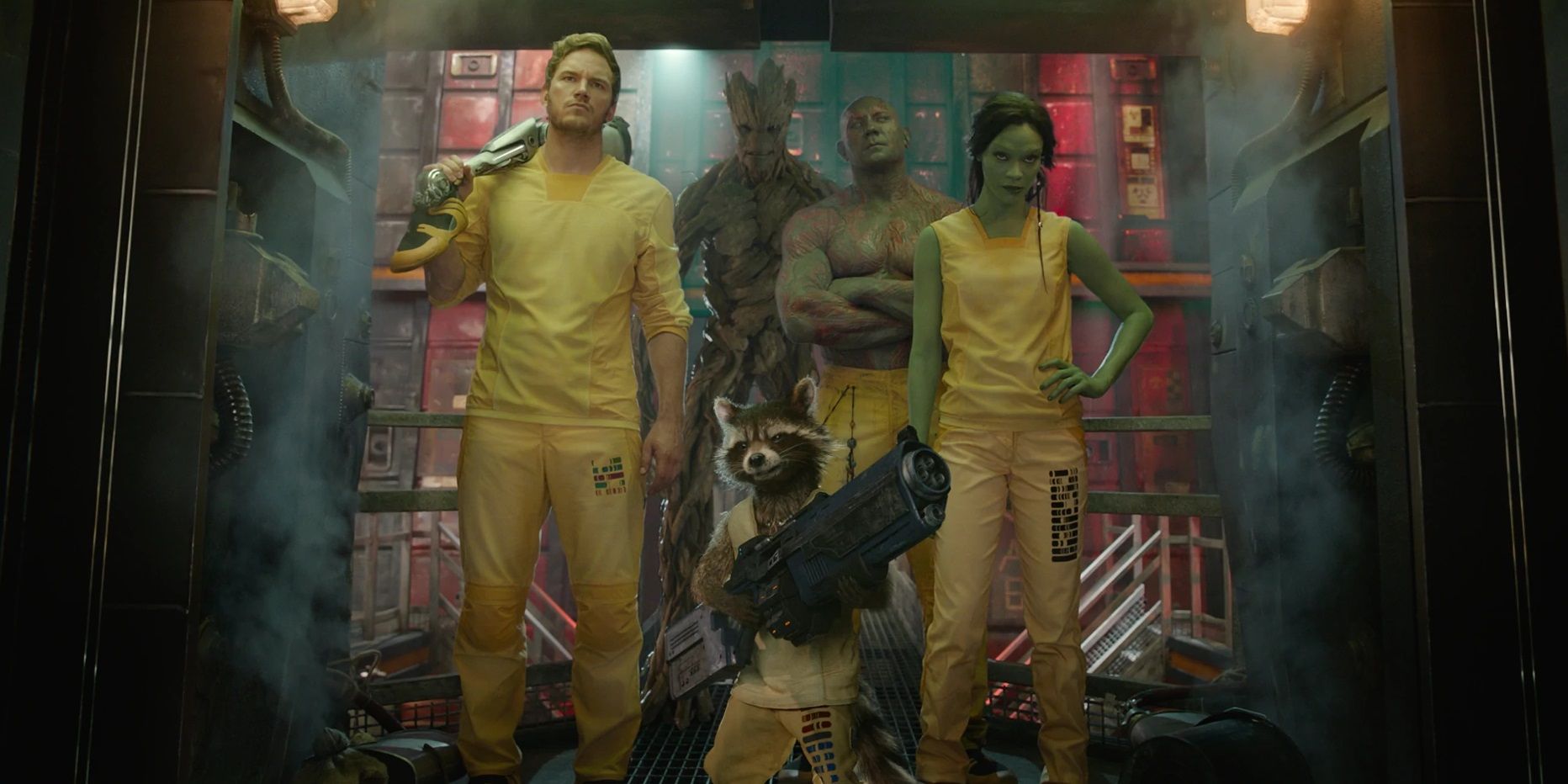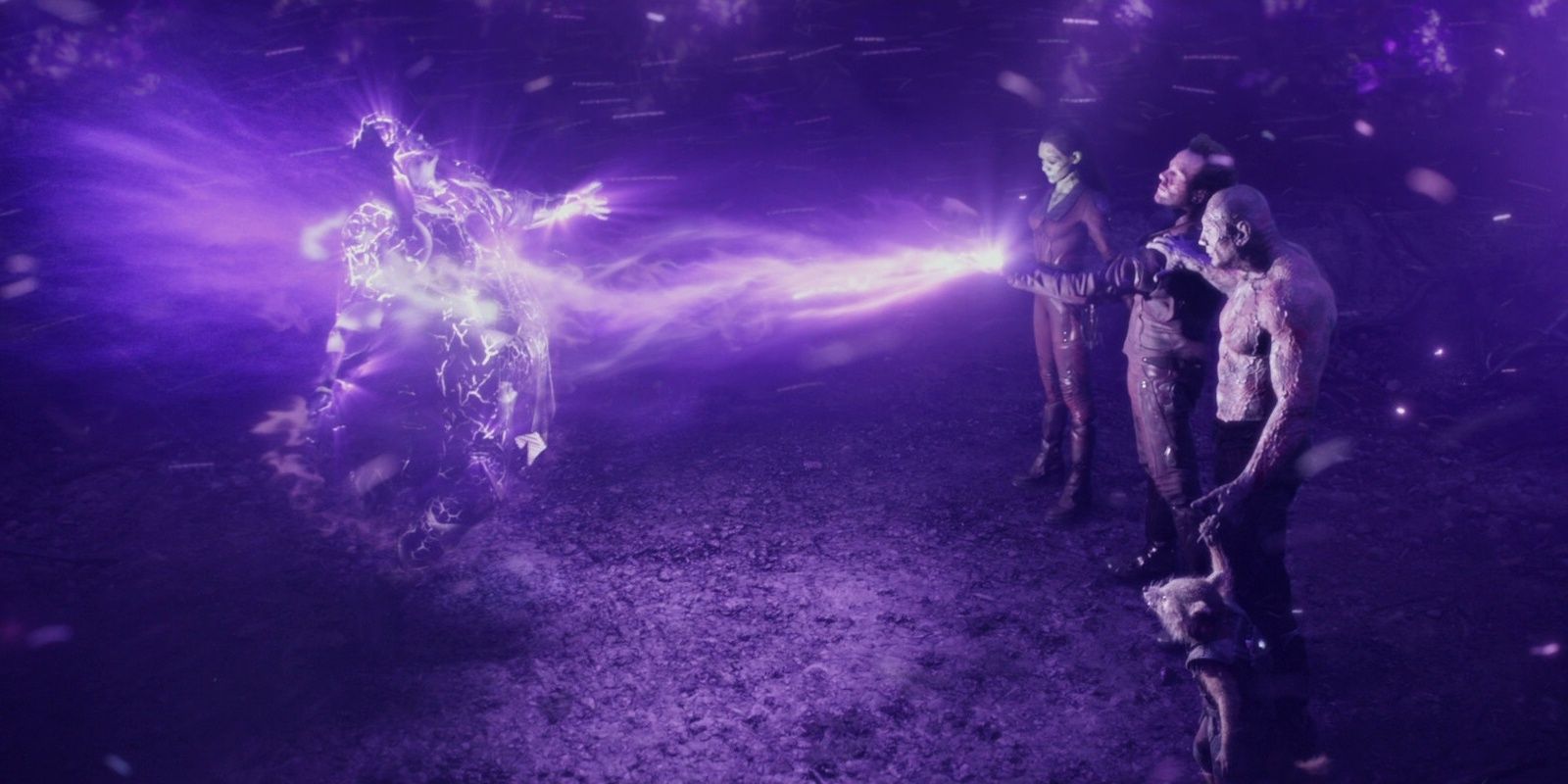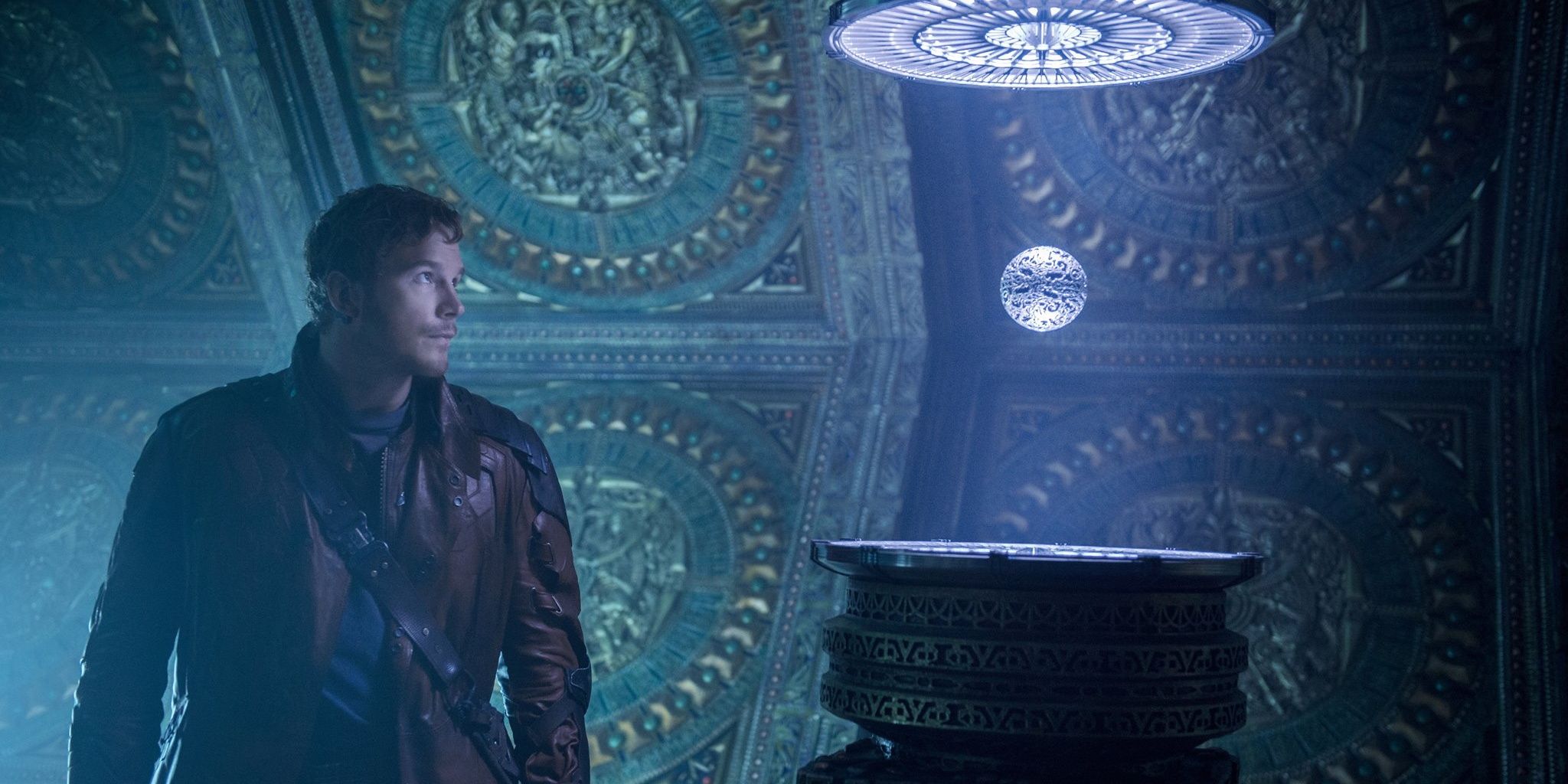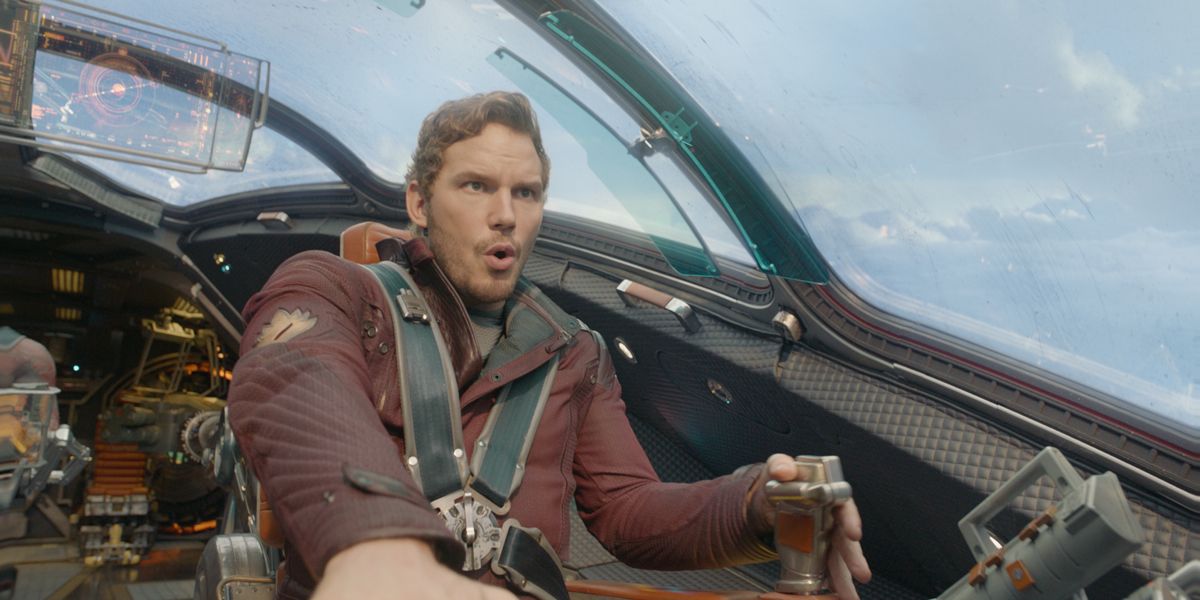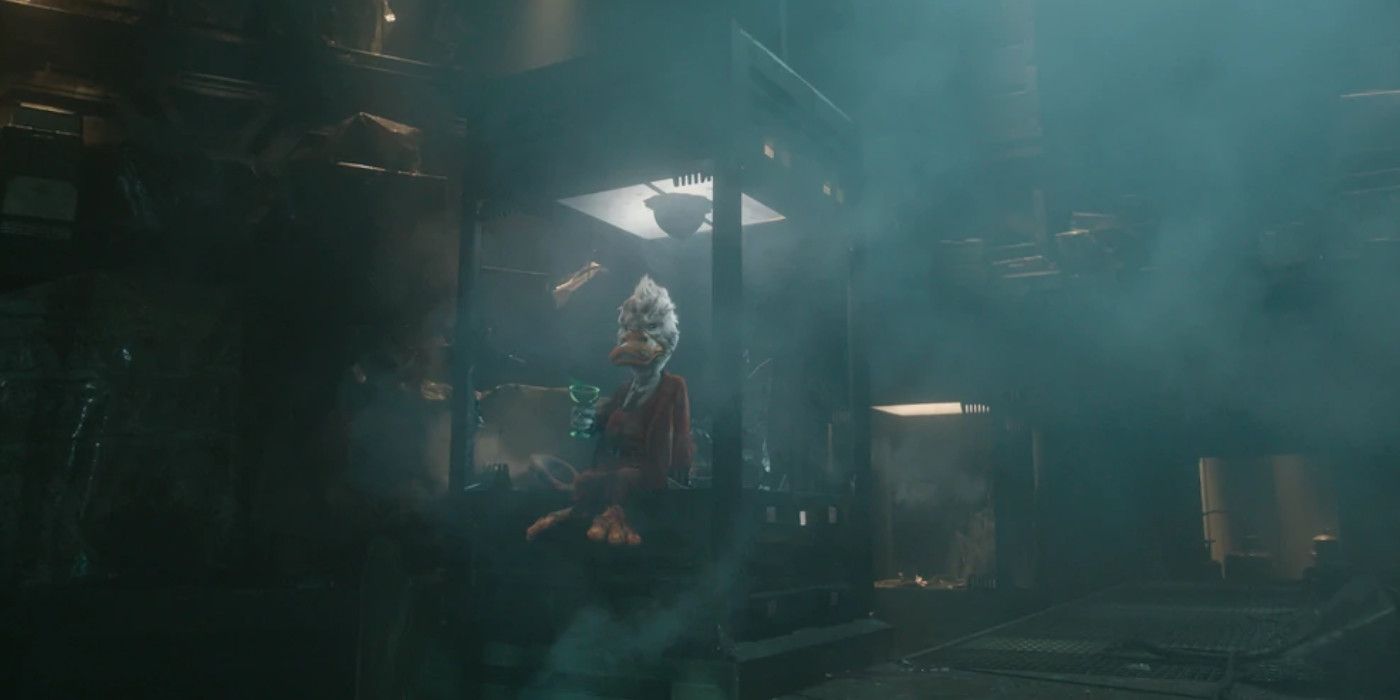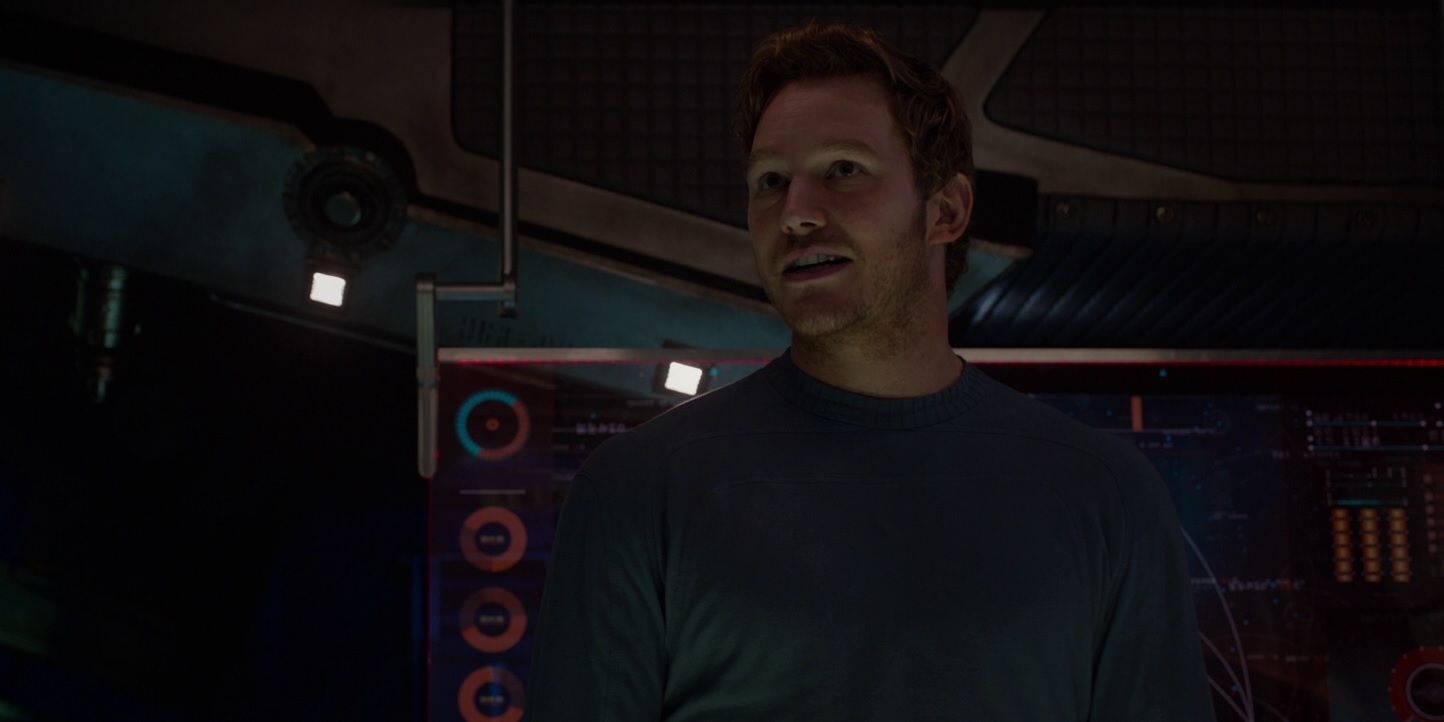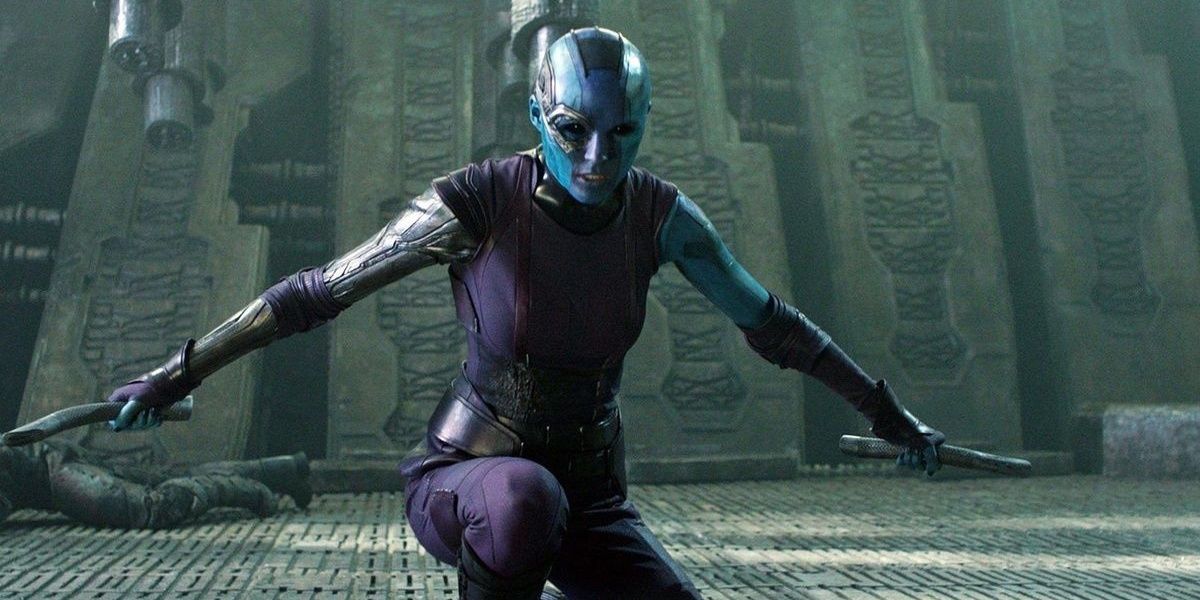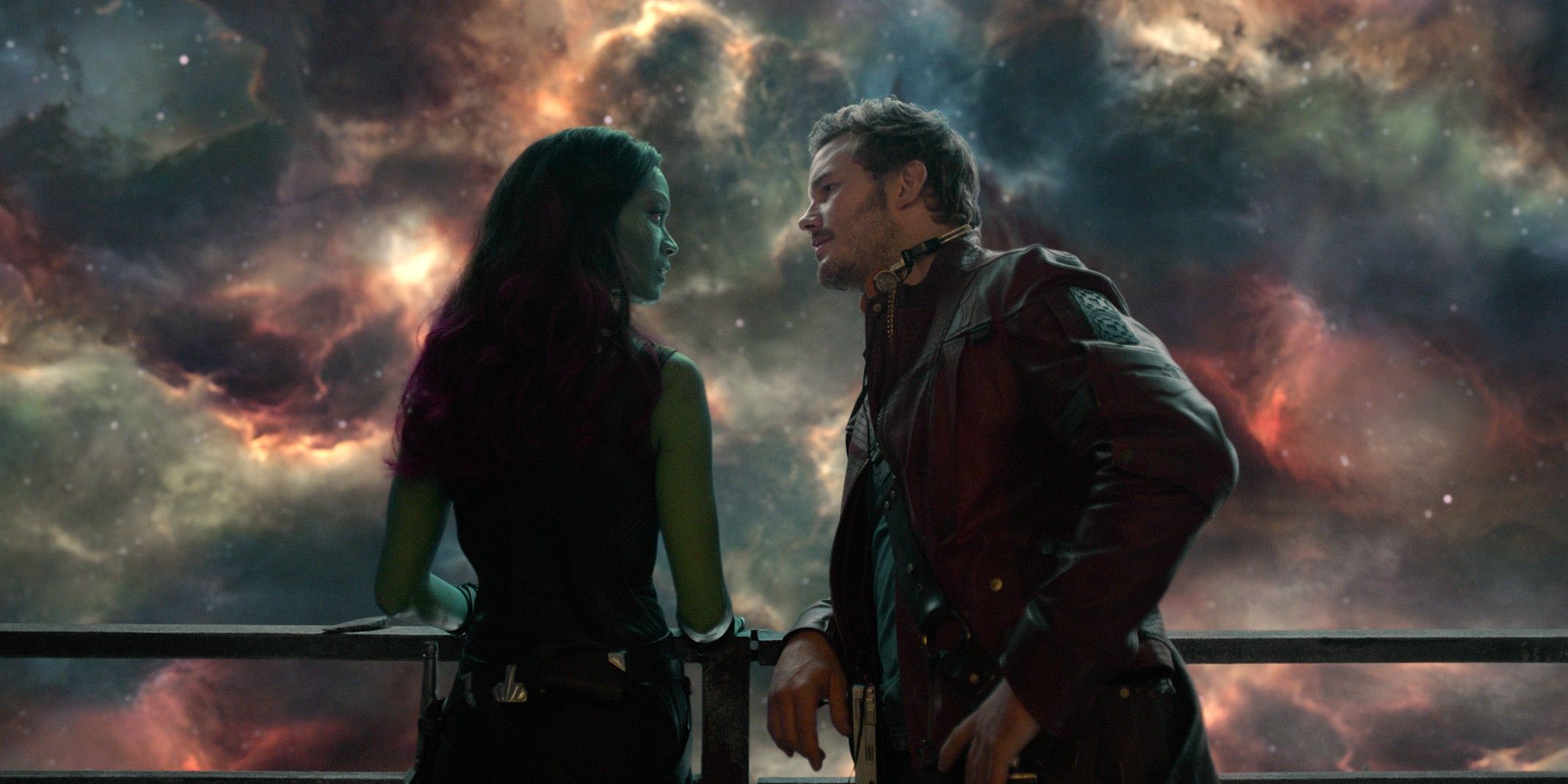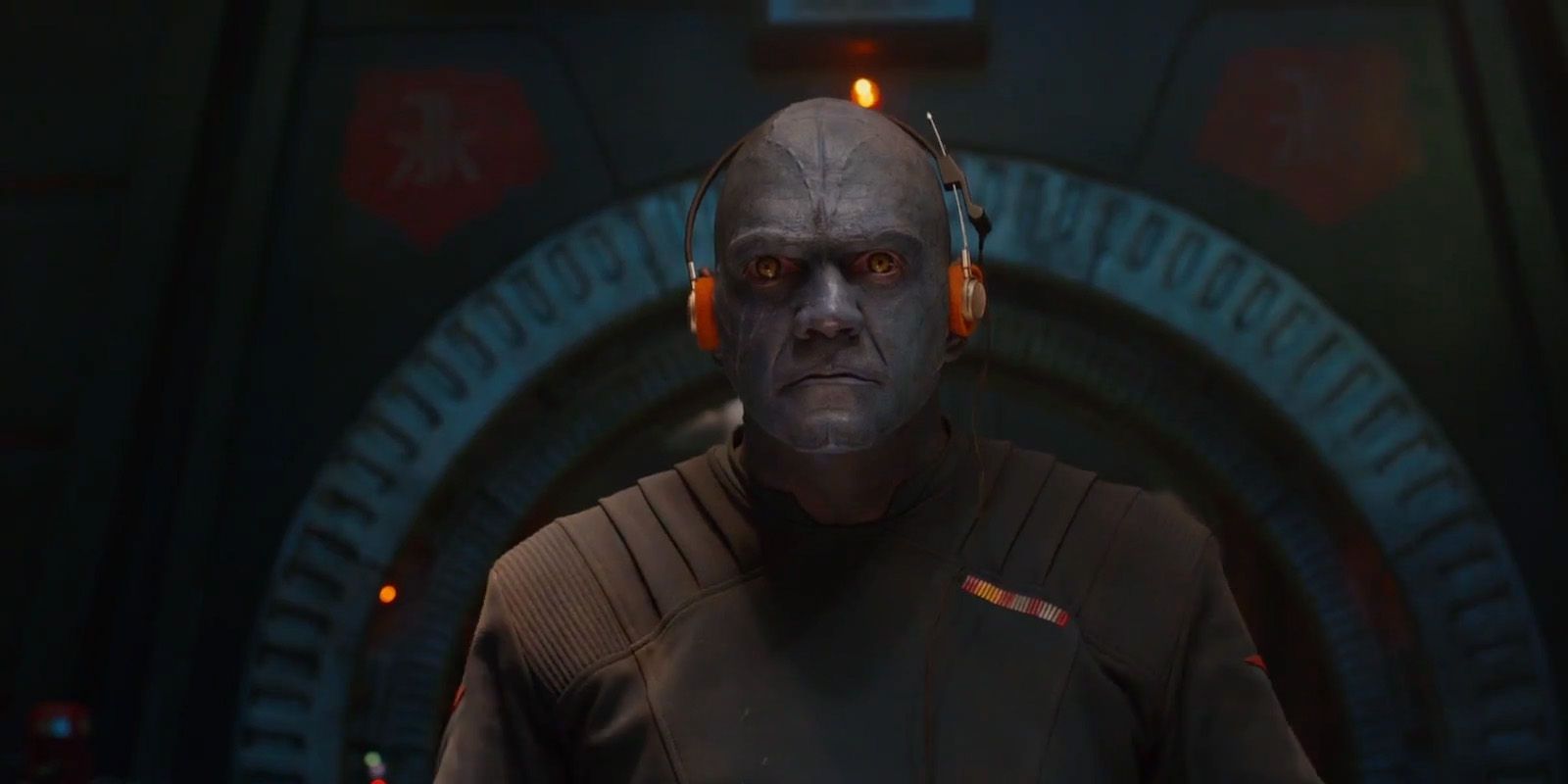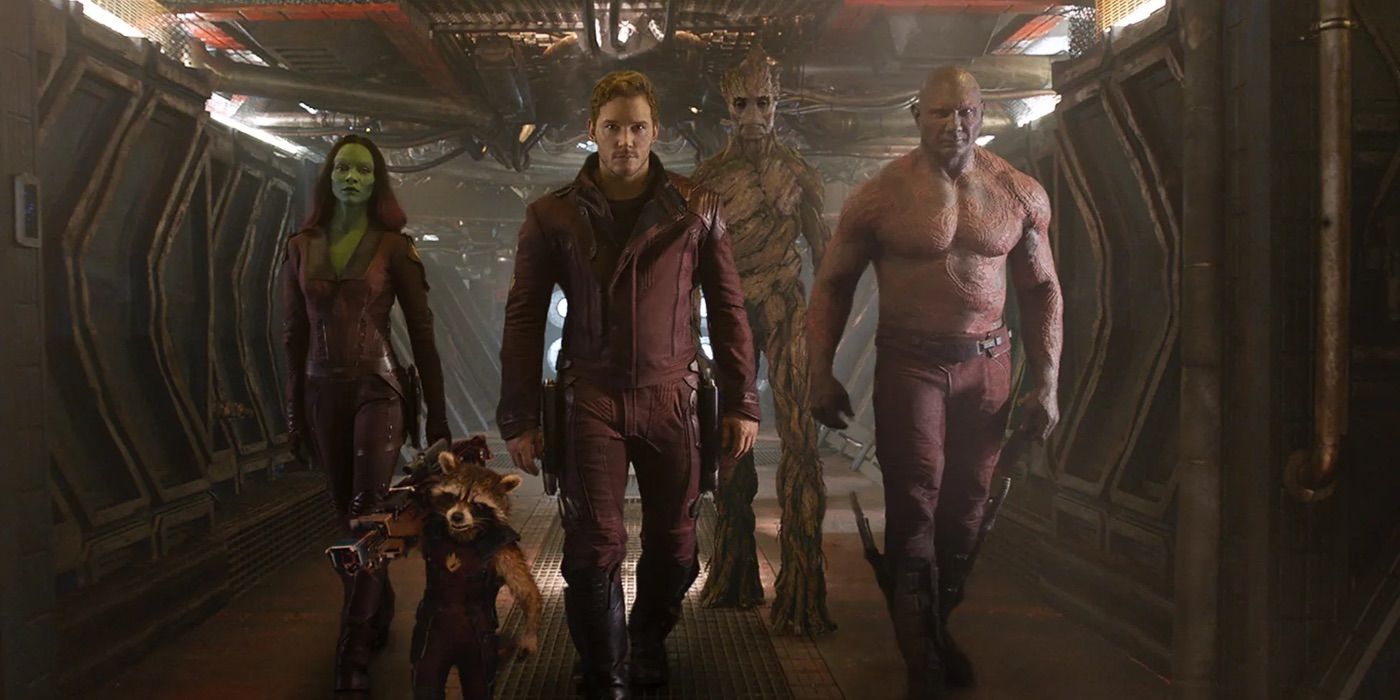Although it was initially expected to be Marvel Studios’ first box office bomb, James Gunn’s Guardians of the Galaxy ended up being a game-changer for the MCU. Gunn radically reshaped the franchise with a comedic tone that doesn’t take itself too seriously. The movie has the perfect combination of heart, humor, and heroism.
But as much as Guardians reinvented the Marvel formula, it also adhered to a few of its basic tenets, like a three-act story structure, the search for a mystical MacGuffin, and a big climactic battle sequence.
Sticks To The Marvel Formula
Assembling A Team
Ever since Nick Fury assembled the Avengers, the MCU has been heavily focused on superhero team-ups, with such organizations as the Defenders, the Revengers, and indeed the Guardians of the Galaxy joining forces to defeat a common enemy.
The foundation of the Guardians of the Galaxy adheres to the MCU’s familiar theme of “found family.” Quill lost his mother, Gamora was raised by an abusive adoptive father, Drax lost his wife and daughter, and Rocket and Groot never had families to begin with. In lieu of functional family units, they find a familial bond with each other.
Three-Act Story Structure
Storytellers have been using a three-act structure – broadly, a beginning, a middle, and an end – since the earliest stories told around campfires in prehistoric times. The first act establishes the characters, the world they inhabit, and the threat to that world; the second act raises the stakes; and the third act resolves the characters’ conflicts, both internal and external.
Like most action-adventure blockbusters, the MCU’s entries tend to follow this structure (and the “monomyth” framework that Joseph Campbell attached to it), and Guardians is no exception.
Search For A MacGuffin
From the Tesseract to the Aether to Hank Pym’s shrunken-down laboratory, most MCU movies introduce a MacGuffin that the villain wants to acquire and the hero has to keep out of their hands.
In Guardians of the Galaxy, this vaguely defined cosmic weapon is called “The Orb.” Guardians at least calls attention to its use of a tired trope when Quill says the Orb has “a real shiny blue suitcase, Ark of the Covenant, Maltese Falcon sort of vibe,” referencing three of cinema’s most iconic MacGuffins.
Final Battle
Almost every MCU movie culminates in a huge battle sequence in which the heroes take on the villains, tensions run high, and good ultimately triumphs over evil.
Guardians of the Galaxy has a big space battle, but the climactic action is an intimate confrontation between Ronan and the Guardians in which the Guardians’ love for each other bonds them together to harness the Orb’s power against him.
Credits Scenes
Since Tony Stark was recruited for the Avengers Initiative, every MCU movie (except for Endgame, the only one with a sense of finality) has kept the audience waiting through a long list of names for an extra couple of scenes.
In the mid-credits scene of Guardians, Groot is resurrected as a baby, setting up his Funko-friendly return in the sequel. In the post-credits scene, Howard the Duck sits in the Collector’s museum, sipping on a drink.
Deviates From The Marvel Formula
Dark Humor
Almost every MCU movie has a heavy focus on comedy, but Guardians of the Galaxy turned the MCU into as much of a comedy franchise as a superhero action-adventure franchise. But most of the gags in Marvel movies are harmless and lighthearted.
From the “Jackson Pollock painting” line to Rocket insisting he needs a fellow inmate’s prosthetic limb for the jailbreak, Guardians exhibits plenty of Gunn’s signature dark humor.
Sympathetic Villain
Ronan is the main villain of Guardians of the Galaxy, but the secondary villain is much more memorable, engaging, and surprisingly sympathetic. Ronan is a generic, one-note cosmic overlord type, but Nebula has a relatable motivation.
Nebula is so desperate for Thanos’ approval that she’s determined to kill her sister to prove she’s the better fighter. In moments like Nebula reacting with horror when she thinks she might have succeeded, Karen Gillan brings plenty of depth to the character.
No Bathos
Despite setting the comedic tone that led to the MCU’s much-criticized focus on too-cool-for-school “bathos,” Guardians is one of the exceptions to this franchise trend. It’s a full-blown comedy, but Gunn treats the characters with the same sincerity as Patty Jenkins’ Wonder Woman.
Unlike many other Marvel movies, Guardians has plenty of genuine heart. The emotional moments get to be emotional. Scenes like Quill flying out into space to revive Gamora or Groot sacrificing himself to save his new friends and saying, “We are Groot,” are never undercut by a joke.
Diegetic Soundtrack
Most Marvel movies have an original score in the John Williams tradition, but in the Guardians movies, Gunn has shaken up the franchise’s musical identity.
Tyler Bates provides an original score, but the Walkman “Awesome Mix” introduced diegetic music that the characters can actually hear in the scene. Quill’s mixtape paved the way for Gunn to drop the needle on late-‘60s and early-‘70s classics from his record collection.
Antiheroes
Marvel movies usually have clear-cut heroes, but there are no traditional protagonists in Guardians of the Galaxy. Every Guardian is a morally gray antihero with both likable qualities and imperfections.
By the end of the movie, the Guardians have found a nice middle ground with their ethics. Quill asks his fellow Guardians, “So, what should we do next? Something good? Something bad? A bit of both?” Gamora tells him, “We’ll follow your lead, Star-Lord,” and Quill quips back, “Bit of both!”

